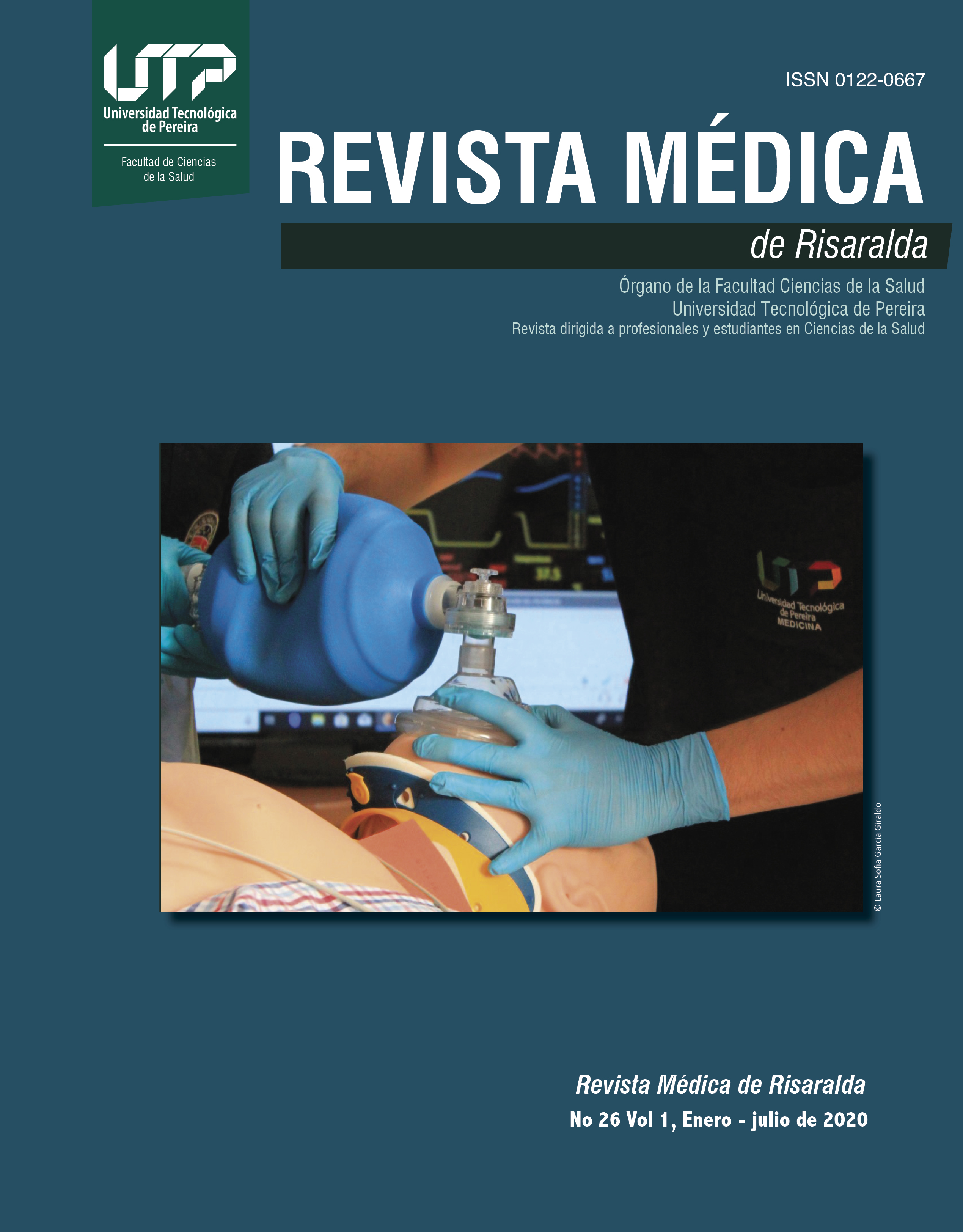Post-traumatic stress disorder in abused children that are hospitalized in five ICBF institutions in Pereira
DOI:
https://doi.org/10.22517/25395203.16531Keywords:
Post-traumatic stress disorder, Child abuseAbstract
Introduction. Post-traumatic stress disorder (PTSD) appears after being exposed to a threatening event; it includes symptoms of avoidance and intrusion of memories, an increase of arousal and reactivity, and negative alterations in cognitions and mood. It can appear in more than 50% of children affected by disasters caused by nature or human beings, such as abuse; these experiences can seriously affect the children's present and future quality of life.
Objective. This descriptive research aims to determine the prevalence of PTSD in hospitalized children for mistreatment in five Pereira institutions linked to the ICBF.
Materials and Methods. A graded scale was constructed, validated, and used based on the symptomatic DSM-5 criteria of PTSD and was adapted to the school population. It was applied through a personal interview after giving some playful education about the relevant concepts to the children.
Results and conclusions. The standard population was composed of 46 boys and 47 girls that were part of the ICBF. The main range of age was 11.6 (standard deviation 2.0), the maximum stay time in place was the lowest (less than six months) with a decreasing tendency, and a schooling level below to the expected according to the age. The most common cause of hospitalization was inter-family violence (49%) and 41% for abandonment or extreme poverty. According to the PTSD criteria, 60 youngers (64.5%) were hospitalized for violation of rights, and eight children (8.6%) fit with all but one symptomatic standard (subclinical PTSD). This high percentage tallies with the ones found in the world literature and Colombia. Finally, 21.5% had no symptoms, and 5.4% had not been exposed to traumatic events. The different symptomatic criteria had a similar level of intensity.
Downloads
Downloads
-
Vistas(Views): 1011
- PDF (Español (España)) Descargas(Downloads): 532
Published
How to Cite
Issue
Section
License
Cesión de derechos y tratamiento de datos
La aceptación de un artículo para su publicación en la Revista Médica de Risaralda implica la cesión de los derechos de impresión y reproducción, por cualquier forma y medio, del autor a favor de Facultad de Ciencias de la Salud de la Universidad Tecnológica de Pereira. 1995-2018. Todos los derechos reservados ®
por parte de los autores para obtener el permiso de reproducción de sus contribuciones. La reproducción total o parcial de los trabajos aparecidos en la Revista Médica de Risaralda, debe hacerse citando la procedencia, en caso contrario, se viola los derechos reservados.
Asimismo, se entiende que los conceptos y opiniones expresados en cada trabajo son de la exclusiva responsabilidad del autor, sin responsabilizarse ni solidarizarse, necesariamente, ni la redacción, ni la editorial.
Es responsabilidad de los autores poder proporcionar a los lectores interesados copias de los datos en bruto, manuales de procedimiento, puntuaciones y, en general, material experimental relevante.
Asimismo, la Dirección de la revista garantiza el adecuado tratamiento de los datos de carácter personal



